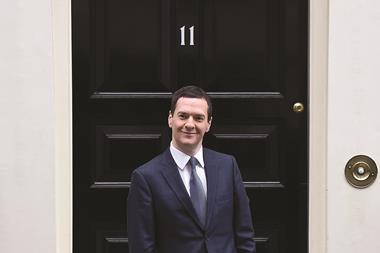The talk of a “one nation approach” in the Queen’s Speech was slightly disorientating (some might say disingenuous), when much of the detail was about greater devolution of powers to the cities, not to mention Scotland, Northern Ireland and Wales.

You can see why the Tories felt the need for soothing rhetoric that stresses devolution will “bring together different parts of the country”… rather than potentially setting nation against nation, region against region, city against city. But ignoring the linguistic sleight of hand, isn’t the reality that we are heading towards becoming a nation more fragmented, almost federal in form? I’m not sure that’s what Benjamin Disraeli had in mind when he came up with the concept of One Nation Toryism.
On the plus side, devolution could have a hugely positive impact in unlocking regeneration and growth and giving the regions greater powers over a raft of areas such as revenue-raising, planning, transport infrastructure and housing - all the stuff that supports development, in other words - especially if all parts of the UK, not just those with a mayor, get to benefit.
There is certainly plenty of regional appetite for it and with occupiers already looking beyond the capital for more affordable space, it will also fuel the whole northshoring and relocation phenomenon. HSBC is already moving part of its business to Birmingham and other banks are looking to move out of London too.
Somewhat ironically, given the threats made by some big companies based north of the border before the Scottish referendum, the Scottish cities could be among those that reap the rewards. Indeed, a number of chunky requirements have been launched for space in Glasgow and Edinburgh - tellingly, on behalf of the very body driving devolution, the government.
Another region set to capitalise is the Midlands. As ‘Lord of Devolution’ Michael Heseltine revealed to Property Week last month, Birmingham is poised to be the next “powerhouse”, although the councils will need to figure out a way to work together properly first. Ditto the other councils joining forces in the hope of greater powers. At the moment, there is so much in-fighting that Greater Manchester could end up being the only real success.
An interesting aside is that implementation of the bill and ensuring devolution gets adopted by cities other than Manchester falls to the DCLG and Greg Clark as secretary of state. Clark was cities minister when the referendum on city (note not city regional) mayors failed in 2012. Can he persuade councils to get with the programme this time around?
The Queen’s Speech raised other big questions, not least when the EU referendum is going to take place. The hope is sooner rather than later, but all the speech did was reiterate the deadline of by the end of 2017. That won’t do anything to assuage fears the UK will be beset by the same uncertainty Scotland was - or that international investors will be deterred from investing.
The Housing Bill is another cause for concern. Initiatives such as the extension of Right to Buy and starter homes are all well and good, but they do nothing to stimulate supply. But then this isn’t aimed at the supply side; it is aimed at the demand side - ie the general populace of would-be house owners and renters. In fact, with further powers going to Scotland, devolution to the English regions, English votes on English issues and a host of other crowd-pleasing policies, the whole speech was very much about delivering power back to the people and increasing democracy and choice… whether the impact on our industry is positive or not.






























No comments yet